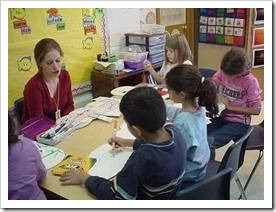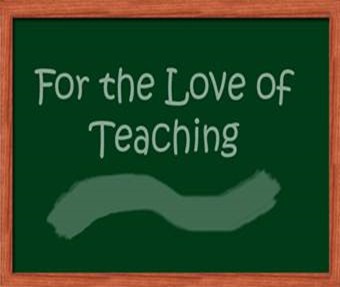
Previously on Teaching & Education Beliefs, I wrote it was the last set of beliefs, but they were not. Sorry. Today’s beliefs are. Here are the last 20 of my top 100 beliefs about teaching and education.
Testing is an art. Unfortunately, most education systems cannot even call themselves amateurs.
– Ronit Baras
- All kids are gifted. Every child has some talent or skill. Teachers are there to help them develop and excel in it. But remember, numeracy and literacy skills are not the only gifts available and they are not great predictors of excellence in the future.
In education, it is very important to plant the seeds of what we want to harvest.
– Ronit Baras - Kids’ hobbies are very important for their emotional intelligence, more than their academic success. Encourage kids to have hobbies, share yours with them, introduce them to different people with different hobbies and give a stage in class to share theirs.
- Never read a kid’s report card from previous years. Every student of mine starts with a clean slate. At the beginning of each year or course, I tell my students that everyone in my class can be successful regardless of what happened in the past. And I make sure I make them successful. Kids deserve a second, third, fourth chance…even endless chances.
Much just like goldfish grow in perfect proportion to the size of their bowl, children grow in perfect proportion to the size of the emotional freedom they are given to explore, learn, feel and express.
– Ronit Baras - One of my biggest inspirations was Carl Rogers. In his book, “The Freedom To Learn” he quoted Albert Einstein by saying, “It is in fact nothing short of a miracle that the modern methods of instruction have not yet entirely strangled the holy curiosity of inquiry; for this delicate little plant, aside from stimulation, stands mainly in need of freedom; without this it goes to wrack and ruin without fail”. This quote shaped my philosophy on learning and teaching. Freedom to learn is not trivial. It is not something kids need to take by force, but something teachers need to give with love.
If the system was honest, kids would never consider cheating. They would think of a test as more of an opportunity to show off their skills, abilities and talents.
If the system was open, kids would not need to memorize insignificant information that they will never need. The can come to school happily, to grow, evolve and learn.
If the system focused on kids’ wellbeing, they would not be afraid of disappointing parents’ and teachers’ expectations. They would feel proud, curious, adequate and motivated.
If the system was creative, kids would not aim to simply “pass” the test. They would constantly test and evaluate themselves.
– Ronit Baras - Education is not about memorizing facts. It is better for kids to memorize good qualities about themselves or ways to increase their confidence than a date in history or how to obey adults.
- Kids need to learn to develop their own thoughts and ideas about life rather than blindly fulfilling their parents’ and teachers’ expectations. They are then free to think for themselves, be flexible and adopt – three very important components of emotional intelligence.
- Teachers form assumptions about kids’ based on where they are sitting in the classroom, their family background, and the way they dress. Their assumptions shape the way they treat the children. They project these assumptions through their eye contact, smiling, patience, frequency of asking students to answer questions, giving clues, criticism, praise, feedback, demands and interactions. Like the self-fulfilling prophecy, 100% of the times, their assumptions are fulfilled, regardless of the child’s true ability. Therefore, it is essential in education to work with teachers’ assumptions and emotional intelligence.

- I encourage my students to use self evaluation. It is one of the best tools for self development and growth. They take part in their own evaluation and reflect on their success and progress. It amazes me over and over again how accurate kids are when assessing themselves. Even if they can give themselves any mark they want, they will be very honest with their self evaluations.
- If there is a contradiction between my evaluations and the kid’s self evaluation, this is a sign that my expectations were unclear, I did not explain things properly, there was a problem with my communication or that my evaluation method was not suitable for this particular child. It means I need to evaluate myself (not the child!).
- If possible, work one-on-one with the kids. Kids going at their own pace progress faster than those going through a class program. If they can go forward faster than others, allow them to do that and bring them extra material. When I aim to please a whole class, with each student having different sets of qualities, abilities, learning styles and emotional capacities, my bright students suffer and the students who need more support suffer. The ideal situation is to work with student individually, or in a group work with kids who possess the same needs and abilities. That way there is no competition and the kids meet the required curriculum.
- No matter how many times I teach the same subject, the same presentation, the same lesson, I change it to suit the audience level and style (it helps to make sure I do not get bored too!). I have never taught the same subject exactly the same way twice. My workshop participants who attend more than one session often say they were surprised to hear the same things but so differently.
Rules are meant to give kids a sense of certainty, safety and security, rather than a sense of control to their socializing agents.
– Ronit Baras - Co-teaching is the best way to teach. Kids learning from one teacher can either identify with that teacher or not. When they have two to choose from, they can pick the one that most suits their style. It also exposes them to different styles of teaching. In co-teaching, 1+1 equals more than 2. If I teach by myself, I am limited by the way I think. When I teach with another person, I expand my thinking and kids get more than double the benefit.

- It is my duty as a teacher to design a lesson in such a way that kids do not want to miss out on even a minute. Whether it is because any minute is valuable and it is impossible to catch up or we have so much fun that missing any of it would be upsetting. Kids in my class do not need to ask permission to go to the toilet; they make sure they go in the break so they do not miss out.
- I am a teacher, not a police officer. I do not punish kids or threat them with punishments. The point is to the make them want to listen, work and behave is to gain pleasure, and not to avoid pain. I design my lessons in such a way that finishing things early gives them extra time to play and have fun. They put in the extra effort themselves so they can have more time for fun.

- I like giving kids responsibilities. It is a game in practicing power in a safe and supportive environment. Most kids step up to the challenge and learn to recognize abilities they did not know they had.
- I tell my students I am proud of them and happy to be their teacher. This is always true. And telling them so does nothing to detract from my power; on the contrary, it makes me feel proud and happy to be a proud and happy teacher.
- Happy Teachers supports happy kids.
Give a man a fish and he will eat for a day. Teach a man to fish and he will eat for the rest of his life.
– Chinese Proverb
Never do anything for a student that he is capable of doing for himself. If you do, you’ll make him an educational cripple…a pedagogical paraplegic.
– Howard Hendricks
Spoon feeding, in the long run teaches us nothing but the shape of the spoon.
– E.M. Forster
Students don’t care how much you know until they know how much you care.
– Anonymous
There are plenty of quotes and famous saying that have inspired me to be the educator I am today. They have became part of my belief system about teaching and education. What are your beliefs?
Be a happy teacher,
Ronit














